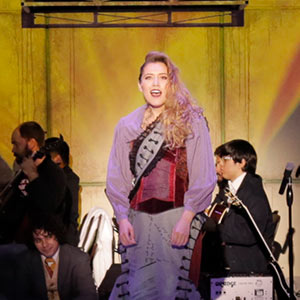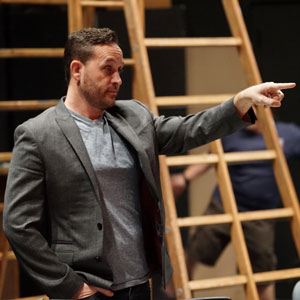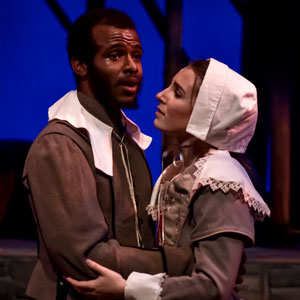Shakespeares teaches morality over mortality
— Fullerton College Hornet - Jon Gonzales - Monday, October 13th, 1997William Shakespeare's "Macbeth" finds a man and a country at a crossroads. Scotland lay rife with waste, torn and plundered by a series of savage battles that have left the country at the very brink of disaster.
When Macbeth, the decorated war hero, is lauded by his king and country, he ends up succumbing to his own swelling ego, leaving him open to temptation and personal weakness. His dabbling in the supernatural makes him susceptible to temptation and, after further egging from his wife, he is induced to commit the ultimate betrayal-the murder of Duncan, his king.
Under the direction of fourth-year theatrical resident Charles Ketter, "Macbeth" promises to be staged in the epic nature of Mel Gibson's Braveheart.' Taking place in the war torn setting of 14th century Scotland and Eilgland, Ketter sees Macbeth as a microcosm of the country's dilemma, a figurehead for a society "hungering for a hero."
"Macbeth is a weak man who is unable to decide anything on his own," said Ketter. "He is overpowered by his belief in mysticism and the dominance of Lady Macbeth. He doesn't stand on his own until the tide has turned in opposition and by then it is too late."
Shakespeare's original rendering· of "Macbeth" was an adaption from "The History of Scotland" by Raphael Holinshed. Far from a factual historical treatment, "Macbeth" was written to satisfy the preferences of King James, his monarch.
"Macbeth" is peppered generously with references to spirituality and the supernatural. Behind the great heroism and trappings of a military strategist, Macbeth is easily overpowered by his belief in mysticism and the ambitious desires of Lady Macbeth.
Like Macbeth, Shakespeare's actions regarding the play were fraught with political posturing. The inclusion of witchcraft and the supernatural were deliberate gestures to a king's curiosity and scholarship in these areas.
"Fortunately," Ketter said, "Shakespeare was more of his own man and we see him using the premise of this complex play to teach morality over mortality.








